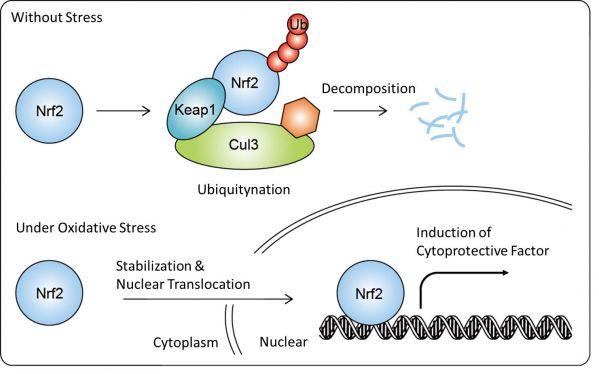Research News
Critical factor newly found for cell response to oxidation stress
When cells have oxidative stress, the cells induce various factors for protection, which gets rid of stress. However, when a response to the oxidative stress does not work well, it could cause diseases like cancer. So, it is important to understand the mechanism of controlling oxidative stress. There is Nrf2, a transcription factor known as a controller of responding to oxidative stress. Under the situation without stress, Nrf2 does not work due to its ubiquitynation and decomposition. But when the cells are under the oxidative stress, the ubiquitynation of Nrf2 get inhibited so that Nrf2 can function.
The research group led by Tomoki Chiba, Faculty of Life and Environmental Sciences, at the University of Tsukuba, discovered that a protein called CACUL1, found in cancer cells, has an important role to respond t oxidative stress by regulating Nrf2, a central factor of stress response mechanism.
Till now, most scientists have thought that the ubiquitynation was suppressed because of the damage of ubiquitin ligase (Cul3-Keap1 complex) adding ubiquitin to Nrf2. But the research finding this time confirmed the existence of a certain factor to suppress ubiquitin ligase.

Original Paper
Yu Kigoshi, Tomomi Fukuda, Tomoyuki Endo, Nami Hayasaka, Shun-ichiro Iemura, Toru Natsume, Fuminori Tsuruta1 and Tomoki Chiba, Scientific Reports, CACUL1/CAC1 Regulates the Antioxidant Response by Stabilizing Nrf2. DOI: 10.1038/srep12857


